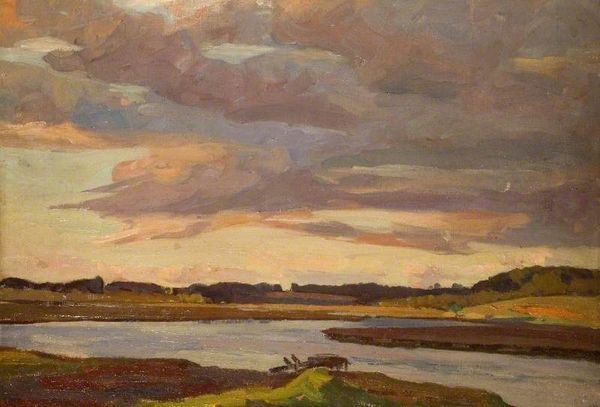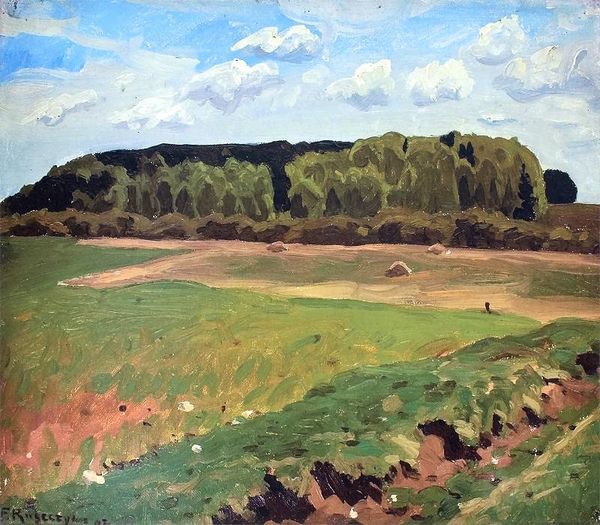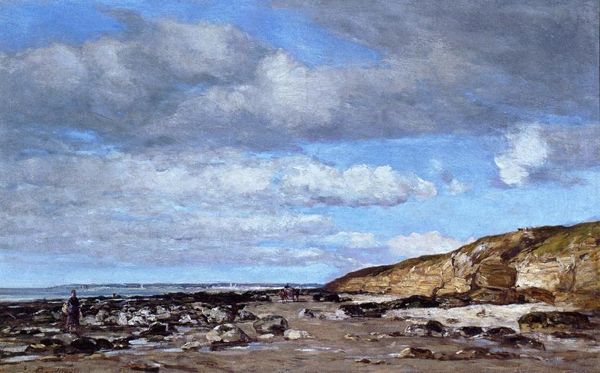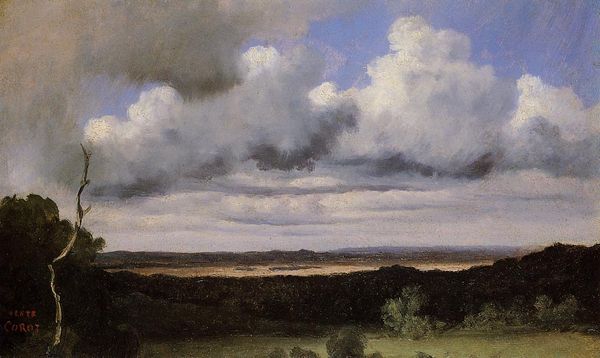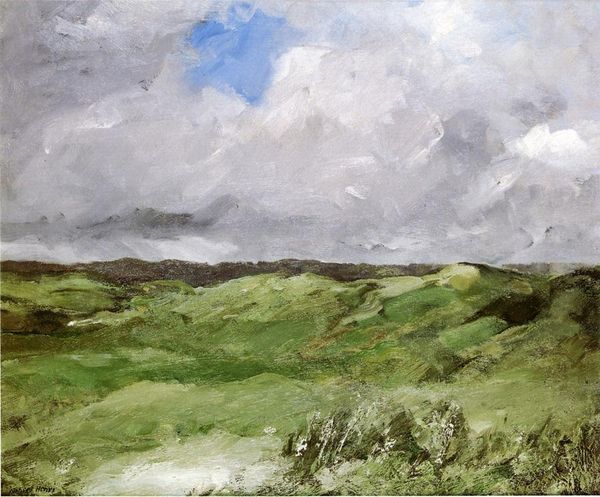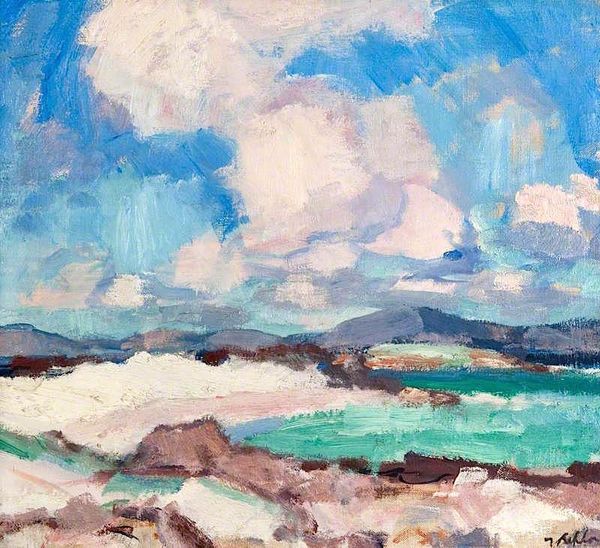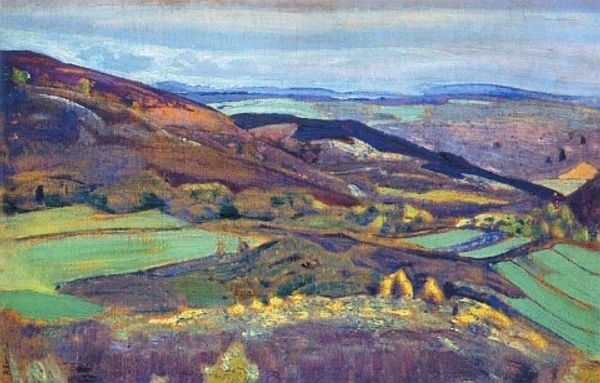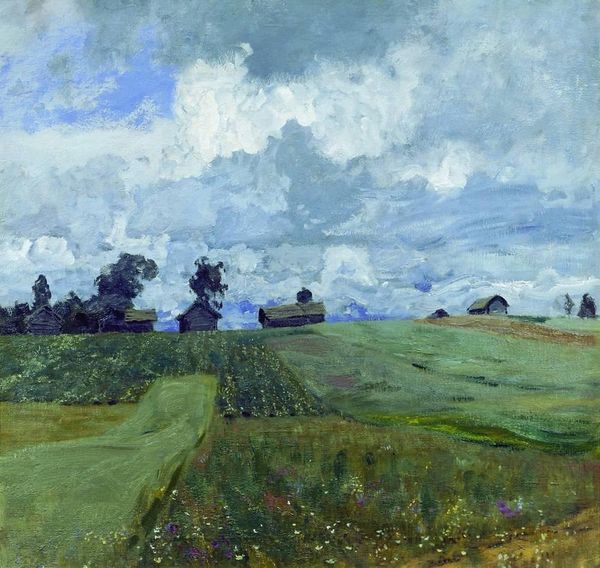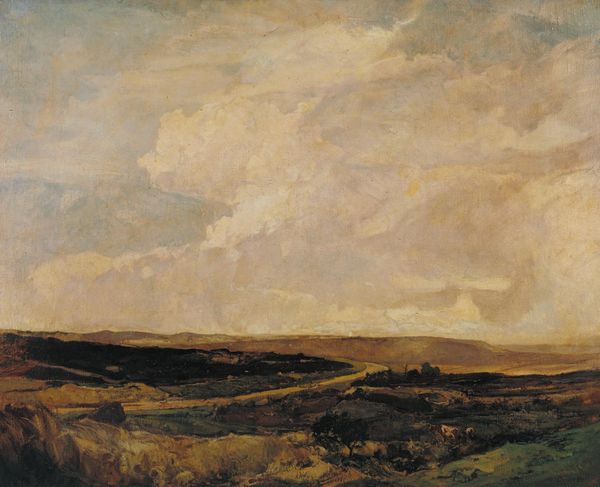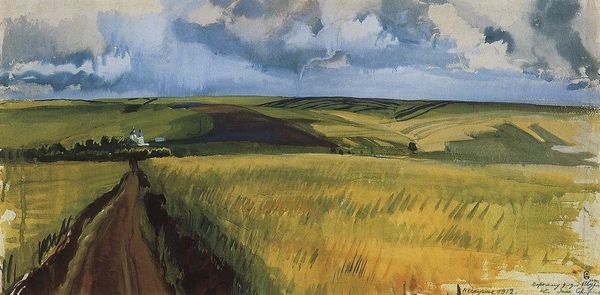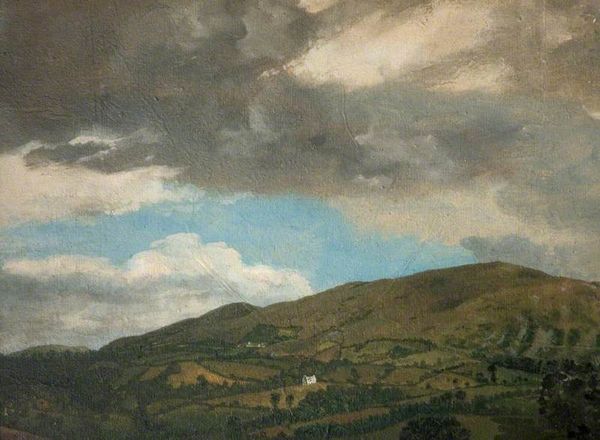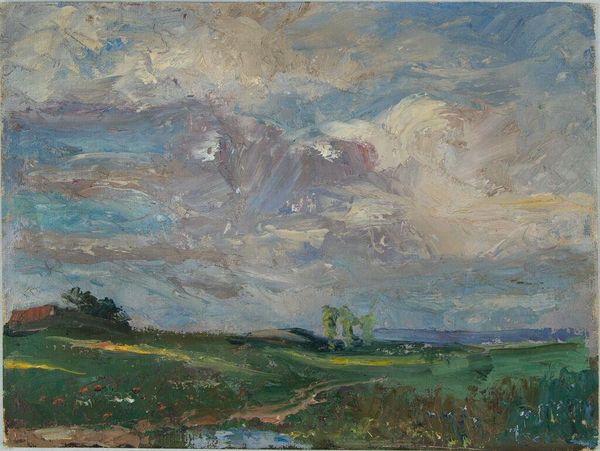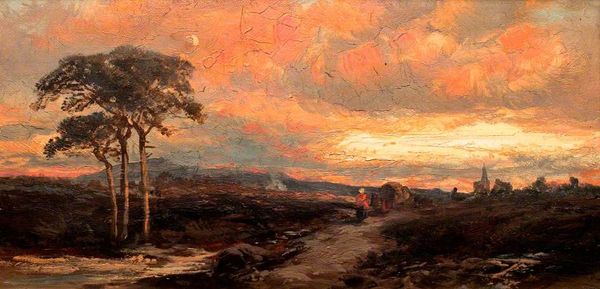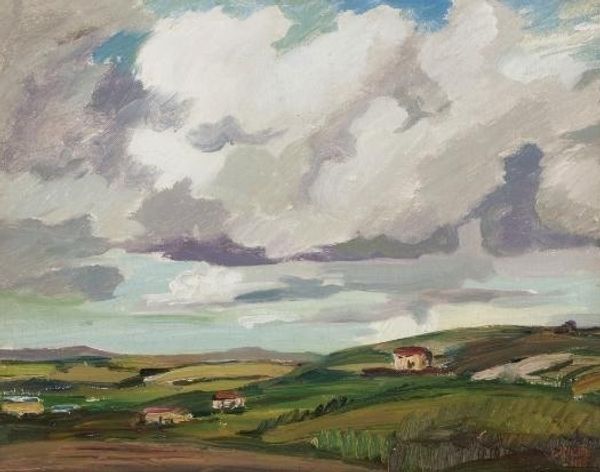
#
sky
#
abstract painting
#
charcoal drawing
#
impressionist landscape
#
possibly oil pastel
#
oil painting
#
acrylic on canvas
#
underpainting
#
cloud
#
seascape
#
painting painterly
#
watercolor
Copyright: Public domain
Editor: So, this is Algernon Talmage’s “Before the Storm, Tintagel, Cornwall,” painted in 1922. Looking at it, I’m struck by the… the sheer drama of the sky. It feels like a really weighty atmosphere pressing down on the landscape. What do you see in this piece? Curator: What I see is a visual encapsulation of early 20th-century Britain grappling with its past and future. Talmage, working in 1922, after the devastation of World War I, presents us with Tintagel, steeped in Arthurian legend, under a sky heavy with implied threat. The choice of subject, a site loaded with romantic national mythology, juxtaposed with that turbulent sky, feels incredibly deliberate. How do you think the socio-political climate might have impacted the artist's choice of subject and its portrayal? Editor: I guess… people would have been searching for stability, maybe looking to the past for reassurance while also being uncertain about what was ahead. Maybe Tintagel represented that longing for a romanticized, stable past? Curator: Precisely. The composition itself plays into this tension. Notice how the landscape is almost secondary, dominated by the overwhelming sky. It suggests a powerlessness, perhaps mirroring the nation's feelings after the war. And how does the somewhat muted color palette affect your interpretation? Editor: It makes the painting feel almost melancholic, like the weight of history and the impending storm are pressing down. I hadn’t really considered the social context that much. I was focused on the atmosphere itself, but thinking about it as a reflection of Britain's state of mind… that adds so much more depth. Curator: Exactly. It moves beyond a simple landscape to a powerful commentary on national identity and collective anxiety. This work isn’t just pretty scenery; it’s a reflection of the nation's psyche in a moment of profound transition. Editor: I will never look at another landscape the same way. Thanks. Curator: And I hope this reminds us that art is in dialogue with history, not isolated from it.
Comments
No comments
Be the first to comment and join the conversation on the ultimate creative platform.
